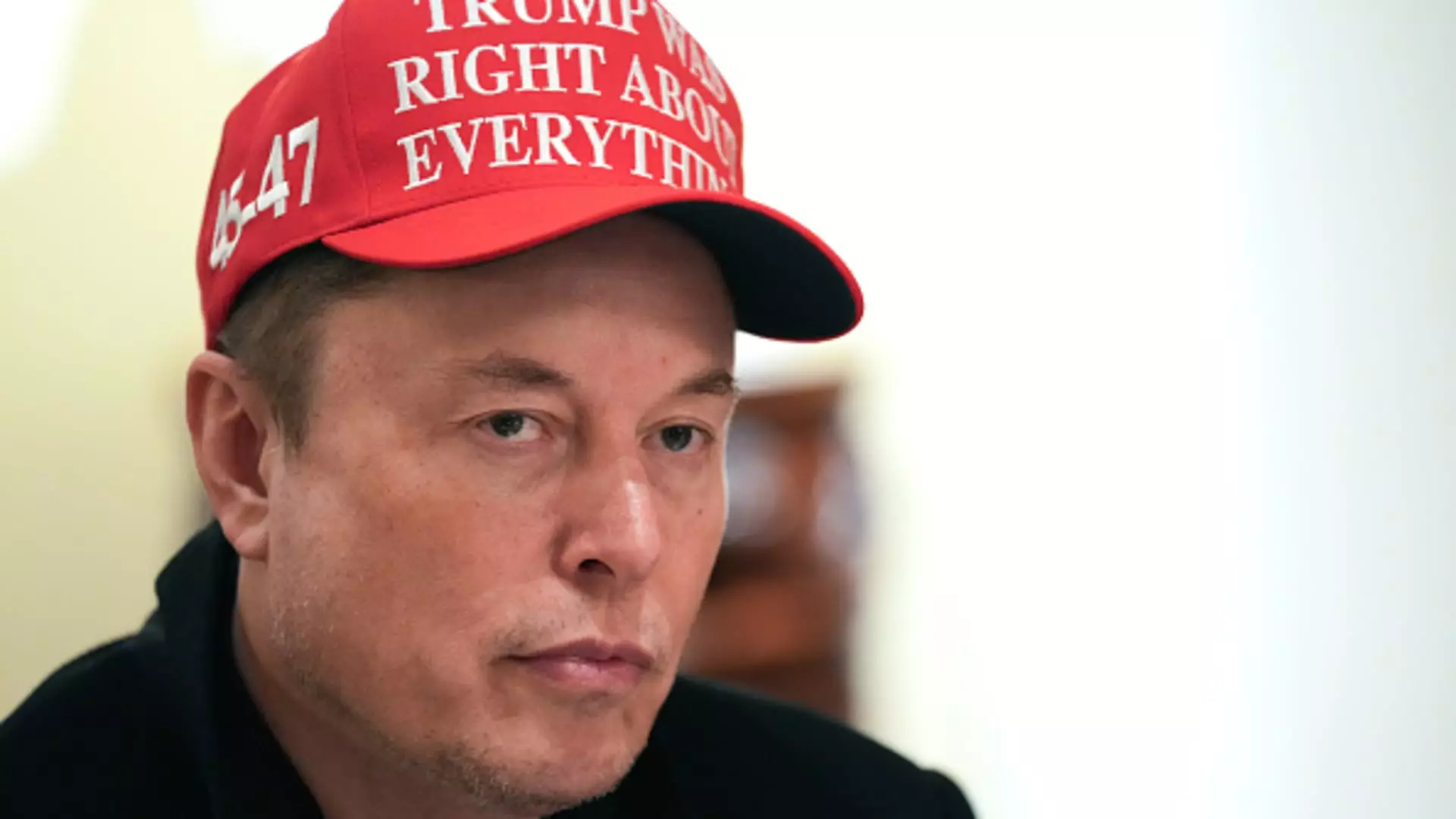The electric vehicle market has frequently heralded Tesla as its trailblazer, championing sustainable transport in a world teetering on the edge of ecological collapse. However, recent developments reveal a different narrative, one that weighs heavily on Tesla’s stock value and brand perception. The almost 6% slip in Tesla’s share price as reported earlier this week unveils a troubling reality: an eye-watering 44% decline in stock value this year alone. As the markets brace for the first-quarter earnings report, investor confidence is dwindling, and concerns over “ongoing brand erosion” come to the forefront.
What’s surprising is not merely the fluctuating numbers but the political minefield surrounding CEO Elon Musk. While many have long admired Musk for his visionary approach, the increasing distraction of his political engagements threatens to overshadow Tesla’s core mission.
Elon Musk: The Double-Edged Sword
Musk’s entanglement in the Trump administration comes laden with problematic implications. His significant expenditure aimed at reinstating Trump in power raises eyebrows and questions about accountability within the company’s leadership. Amidst investor inquiries concerning Tesla’s self-driving tech and their ambitious Optimus humanoid project, it appears that more attention is focused on Musk’s political maneuvers than on the company’s technological advancements. This distraction is not only damaging the brand but also causing tangible impacts on corporate performance.
Tesla’s recent quarterly data reflects a grim reality, as deliveries have experienced a 13% decline compared to the same quarter last year. When investors begin openly speculating on the steps taken by Tesla’s board to mitigate brand damage caused by Musk’s political antics, it lays bare the urgency of restoring public trust.
Falling Consumer Sentiment
The sentiment surrounding Tesla is shifting dramatically. According to Caliber, only 27% of U.S. respondents expressed willingness to purchase a Tesla in March, down sharply from 46% just over a year prior. This trend underscores an alarming erosion of brand loyalty, prompting a reevaluation of not just Tesla’s market position but, more critically, its strategy moving forward. The correlation with Musk’s political affiliations and actions cannot be overlooked, especially as increasing backlash unfolds both in Europe and the U.S.
As Tesla’s stock continues to dip, analysts are grappling with the intricacies of weakening demand, particularly in China. Competition from local brands is intensifying, and the nationalistic sentiments that drive consumer choices in major markets threaten to pull away potential buyers—the very demographic Tesla once sought to attract with innovative technology and sustainable initiatives.
The Analyst’s Dilemma
Industry analysts are treading cautiously in their predictions. Firms such as Oppenheimer point to “ongoing brand erosion” as not only an immediate concern but also a harbinger of future sales challenges. They warn that with the stakes tied to Trump’s tariffs, Tesla’s financial health might be compromised even further. The reality of exporting more vehicles from China bears the dual risk of increased logistical costs and the inevitable pressure on pricing.
Moreover, the disparity in consumer behavior signals a disillusionment with the brand’s former exuberance. Market analytics reveal Tesla’s branding as increasingly intertwined with political turbulence, influencing perceptions in a way that many shareholders view as deeply troubling. The expectations for the upcoming earnings call are intensifying, with analysts eagerly hoping for a rejuvenating vision from Musk.
A Power Shift in Consumer Preferences
The rising competition in the electric vehicle arena is aptly being referred to as a “supply and demand reckoning.” As consumers reassess their buying decisions, it becomes apparent that the once-unquestioned loyalty for Tesla may not be as steadfast. A visible shift in perception could lead to a significant and possibly permanent alteration in market dynamics.
Indeed, if only 27% of potential buyers would consider purchasing a Tesla, the numbers speak louder than any earnings report. This shift poses a stark challenge that many said Tesla would never face, exposing itself to competitor advantages. It begs a resolution that returns the brand to its roots: less politicization and a renewed focus on innovative engineering and sustainability.
The future of Tesla hangs in the balance as it confronts a tide of public perception through the lens of political controversies and brand misalignment. If Musk does not pivot toward a more impartial stewardship of his groundbreaking company, the prospect of enduring damage may not only lose Tesla its reputation but also its once coveted position in the electric vanguard. In these precarious waters, continued missteps could push Tesla not only to the brink of brand identity crisis but also impact the very future it vowed to reshape.

